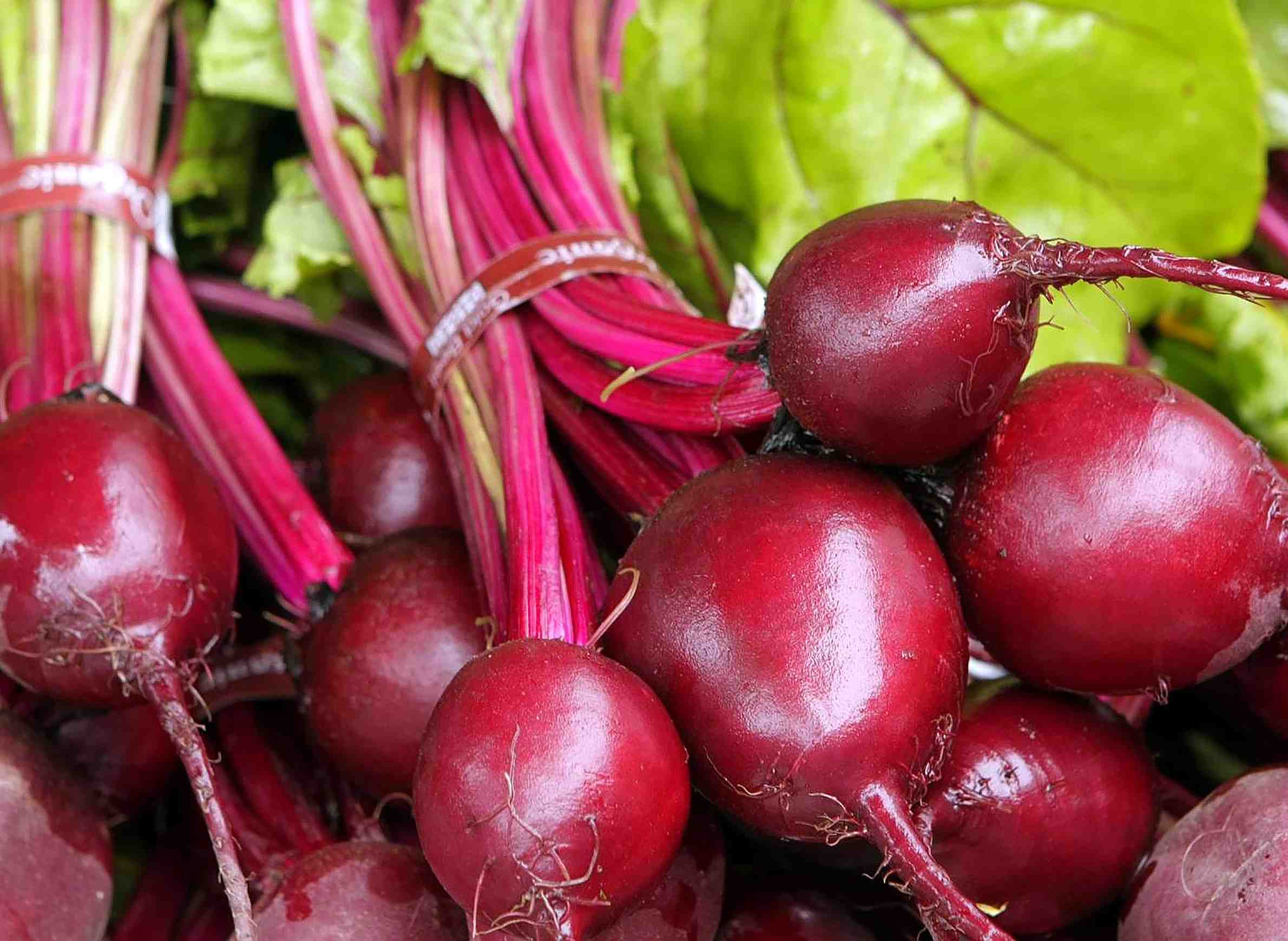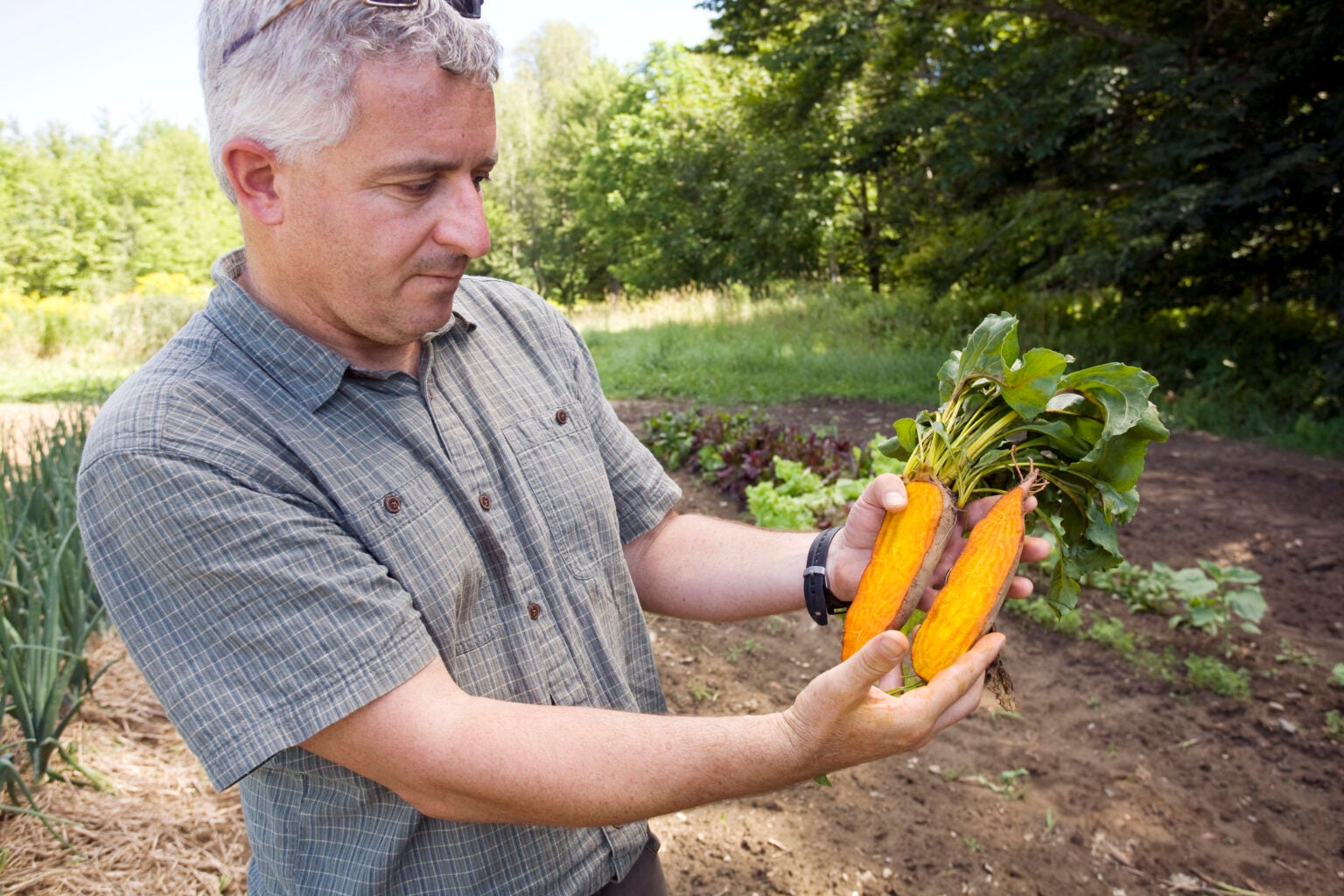Driven by new breeds aimed at improving flavor and quality, a “beet renaissance” is underway and shifting longtime consumer habits with the earthy, root vegetable.
Or, at least, that’s the hope of beet breeders at the University of Wisconsin-Madison and Wisconsin’s industry of beet farmers, who collectively produce more than half the nation’s annual table beet crop.
“It’s no longer your grandmother’s pickled beets,” said Adam D’Angelo, a UW-Madison graduate student and plant biologist. “You go to the grocery store, and you find beet juice, beet chips, beet this and beet that.”
News with a little more humanity
WPR’s “Wisconsin Today” newsletter keeps you connected to the state you love without feeling overwhelmed. No paywall. No agenda. No corporate filter.
D’Angelo and UW-Madison horticulture professor Irwin Goldman recently appeared on Wisconsin Public Radio’s “The Larry Meiller Show” to discuss their work redesigning beets for modern tastes. Goldman said people often complain “about the fact that they taste like dirt.”
“You look at it, and you think of the huddled masses of our ancestors and their old-style foods,” Goldman said. “But there’s something about its earthiness, about its color and its beauty that I find has grown on me over the years I’ve worked on it.”
The “dirt” smell and flavor is partially from geosmin, a naturally occurring bacteria byproduct found in soil. After many years of research, Goldman said he discovered beets themselves also create the chemical through their genetics.
“Why? We have no idea,” said Goldman, who has studied and bred beets for three decades.
UW-Madison touts being the country’s only publicly funded table beet breeder. One of its creations, “Badger Flame,” is designed to be more yellow than other beet varieties, and it carries a sweeter, less earthy flavor. Goldman contributed to its development.
“We chose the oblong shape because we like the way it works in the kitchen when you’re holding the beet or when you’re peeling it and working with it,” he said. “And by dialing back the red and increasing the yellow, we’re almost like painting with the vegetable, being able to make something that has a yellow and red swirl in it.”
With the beet being a specialty crop, Goldman said it can be a challenge for home gardeners to order seeds.
He hopes it gains popularity and then becomes more widely available.
Wisconsin Public Radio, © Copyright 2025, Board of Regents of the University of Wisconsin System and Wisconsin Educational Communications Board.



